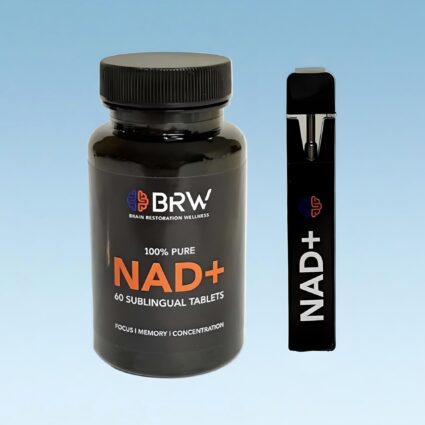Supporting a loved one through the process of drug rehabilitation is a journey marked by challenges and triumphs. This guide explores how families can provide essential support during drug rehabilitation, focusing on practical steps and compassionate strategies. The importance of family involvement cannot be understated, as it significantly impacts the success rates of recovery efforts. Throughout this discussion, a variety of approaches will be highlighted to help families navigate this difficult time.
Understanding Drug Rehabilitation
For families embarking on the support journey, grasping the basics of drug rehabilitation is crucial. Many, while eager to help, find themselves overwhelmed by the complexities of addiction treatment. For instance, a family once shared how confusing the treatment phases seemed until they attended educational sessions at the rehab center, which clarified many of their misconceptions and equipped them to provide better support.
- Recognize the different treatment phases: detoxification, therapy, and aftercare
- Learn the goals set for each phase to align family support efforts
- Familiarize with the terminology used in treatment settings to improve communication with healthcare providers
Setting Realistic Expectations
Setting realistic expectations is foundational in supporting a loved one through rehab. Families should prepare for a journey that is rarely linear and often fraught with setbacks. Understanding that recovery is a gradual process helps in maintaining patience and support throughout.
- Accept that recovery timelines vary widely among individuals
- Prepare for possible setbacks and understand they do not mean failure
- Cultivate a mindset that is both hopeful and realistic to support the long-term recovery process
Communicating Effectively
Effective communication fosters a supportive environment that can significantly ease the rehabilitation process. It’s about listening actively and speaking with empathy, ensuring the loved one feels understood rather than judged. Open lines of communication can encourage them to share their struggles and successes along their recovery journey.
- Practice active listening to understand their feelings and needs
- Avoid judgmental language; focus on empathy and understanding
- Encourage open dialogue about feelings, progress, and challenges

Participating in Family Therapy
Family therapy is a powerful tool offered by many drug rehab centers, designed to heal relationships and improve the family dynamic. Participation in these sessions can deepen understanding and strengthen the support network necessary for recovery. Engaging in family therapy shows commitment to the collective well-being and recovery of the loved one.
- Engage actively in sessions and implement learned strategies at home
- Use therapy to resolve conflicts and improve communication
- Support each other as a family unit to provide a unified front
Providing Emotional Support
Emotional support involves being there in meaningful ways that affirm the loved one’s efforts in overcoming addiction. It’s about being present, offering encouragement, and recognizing the hard work they are putting into their recovery, which can be incredibly motivating.
- Offer reassurance during moments of self-doubt or discouragement
- Celebrate small victories to keep spirits high
- Remain available and accessible to talk through difficult emotions or decisions
Managing Visits and Contacts
Planning and managing visits to the rehab center are important in maintaining connection and showing support. However, it’s essential to respect the guidelines set by the facility and to prioritize the needs of the loved one in recovery.
- Coordinate visits according to the rehab center’s guidelines
- Keep communication supportive, uplifting, and focused on recovery
- Respect the loved one’s need for space or time as part of the healing process

Learning About Addiction
Understanding addiction as a complex and often misunderstood disease is crucial for families. This knowledge can dismantle stigma and foster a more supportive environment conducive to recovery. Many government and medical websites offer valuable resources that provide accurate information and coping strategies.
- Utilize trusted sources like the National Institute on Drug Abuse for information
- Learn about the physical and psychological aspects of addiction
- Disseminate knowledge to other family members to ensure everyone is informed and supportive
Creating a Supportive Home Environment
Preparing a supportive home environment is pivotal as it can significantly influence the recovery process once the loved one returns from rehab. This involves making the home a safe, substance-free zone and ensuring it promotes healthy lifestyle choices.
- Remove substances and potential triggers from the home
- Create a quiet, stress-free space conducive to relaxation and recovery
- Encourage healthy habits like proper diet and regular exercise
Taking Care of Your Own Health
Supporting someone through rehabilitation is demanding, and the well-being of the family members is equally important. Taking care of one’s own mental and physical health ensures the family can continue to provide strong support.
- Prioritize self-care activities like exercise, hobbies, or therapy
- Join support groups for families of individuals in rehab
- Ensure regular health check-ups to maintain physical health

Navigating Relapses
Relapse is a common part of the recovery journey, and preparing for this possibility is critical. Understanding that relapse does not signify failure but rather an opportunity for learning and growth can help families handle such situations more effectively.
- Discuss relapse prevention plans with the loved one and their therapist
- Learn how to respond supportively in case of a relapse
- Use relapse as a learning tool to strengthen future prevention strategies
Celebrating Progress
Recognizing and celebrating progress, no matter how small, can boost morale and encourage continued effort in recovery. These celebrations reinforce the positive impact of the choices made by the loved one and validate the hard work of everyone involved.
- Set milestones and celebrate them without substances
- Use positive reinforcement to encourage continued progress
- Keep track of achievements to reflect on how far the loved one has come
Key Takeaways for Supporting Drug Rehab Efforts
In providing support during drug rehabilitation, families play a critical role. The strategies discussed include setting realistic expectations, maintaining effective communication, and learning about addiction. These approaches not only support the loved one but also strengthen the family as a whole.
Frequently Asked Questions
- What are the first steps a family should take when a loved one enters rehab?
- The first steps include educating themselves about addiction, setting realistic expectations, and engaging in open communication both with the loved one and the treatment providers.
- How can families handle their own stress during a loved one’s rehab?
- Families can manage stress by engaging in self-care routines, seeking support from community groups, and possibly undergoing individual or family therapy.
- What should families do if they feel overwhelmed by their loved one’s addiction issues?
- Seeking professional help for themselves, joining support groups like Al-Anon, or consulting with the rehab center for resources can be beneficial.
- How often should families visit during the rehab process?
- The frequency of visits should be guided by the rehab center’s policies and the readiness of the person in treatment, always prioritizing their needs and recovery progress.
- Can family involvement really make a difference in recovery?
- Yes, numerous studies show that strong family support improves outcomes in rehab by providing emotional stability and a network of accountability and encouragement.














